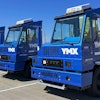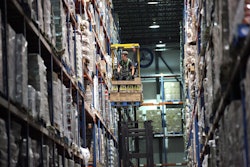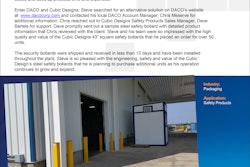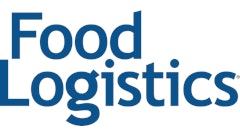Washington, DC—Nov. 12, 2015—Import cargo volume at the nation’s major retail container ports is expected to increase 8.3 percent this month over the same time last year as consumers begin their holiday shopping, according to the monthly Global Port Tracker report released by the National Retail Federation (NRF) and Hackett Associates.
“Conditions aren’t perfect, but the ports are running reasonably well,” NRF Vice President for Supply Chain and Customs Policy Jonathan Gold said. “That’s a dramatic difference from this time last year, when the West Coast ports were experiencing slowdowns and congestion from labor negotiations. Retailers instituted costly contingency plans, but were still worried about whether merchandise would be unloaded in time for the holidays. This year, most merchandise already arrived and replenishment should not be a problem.”
The cargo report comes as NRF is forecasting a 3.7 percent increase in holiday sales this year over 2014. Cargo volume does not directly correlate with sales figures because each container counts the same regardless of the value of its content, but nonetheless provides a barometer of retailers’ expectations.
Ports covered by Global Port Tracker handled 1.62 million 20-foot equivalent units (TEUs) in September, the latest month for which after-the-fact numbers are available. That was down 3.5 percent from August, but up 2.2 percent from a year ago. One TEU is one 20-foot-long cargo container or its equivalent.
October was estimated at 1.63 million TEUs, up 4.5 percent from 2014. November is forecast at 1.51 million TEUs, up 8.3 percent, and December at 1.44 million TEUs, up 0.4 percent.
Those numbers would bring 2015 to a total of 18.35 million TEUs, up 6.1 percent from last year. The first half of 2015 totaled 8.9 million TEUs, up 6.5 percent over the same period last year.
January 2016 is forecast at 1.46 million TEUs, up 18.5 percent from weak numbers seen a year earlier just before West Coast dockworkers agreed in February 2015 on a new contract that ended a months-long labor dispute. February 2016 is forecast at 1.41 million TEUs, up 17.9 percent, also skewed by the labor dispute. March is forecast at 1.35 million TEUs, down 21.9 percent from a year ago because of large volumes seen after the contract agreement.
“Inflation remains non-existent, which worries the Federal Reserve, but with unemployment at 5 percent, we expect to see rising take-home pay that will translate into higher sales,” Hackett Associates Founder Ben Hackett said. “In sum, the U.S. economy is doing well.”
Hackett said a recent review of Global Port Tracker forecasts shows that “our forecasting models are working well and that our qualitative input has a good measure of the economy.” The November 2014 forecast for West Coast imports during January through October 2015, for example, turned out to be within 1 percent of the 8.97 million TEUs actually imported during the period. The 15.8 million TEU forecast for all U.S. ports for the same period came within 4 percent of the actual figure.
Global Port Tracker, which is produced for NRF by the consulting firm Hackett Associates, covers the U.S. ports of Los Angeles/Long Beach, Oakland, Seattle and Tacoma on the West Coast; New York/New Jersey, Hampton Roads, Charleston, Savannah, Port Everglades and Miami on the East Coast; and Houston on the Gulf Coast.



















